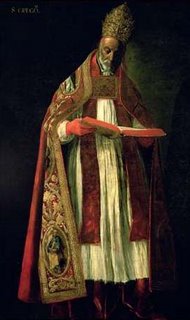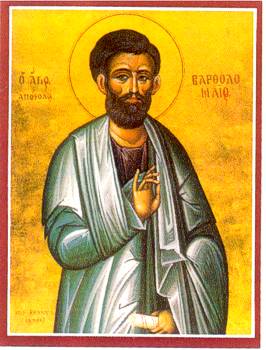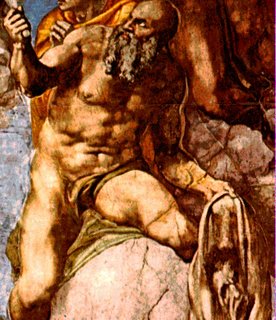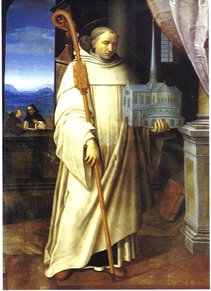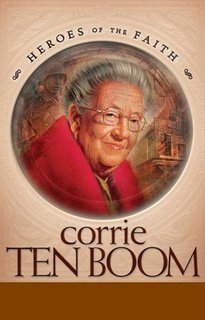
The Ten Boom family of Holland are world famous for their heroic courage in confronting the Nazi menace which was inflicted upon their country when Germany invaded that peace loving country of The Netherlands.
As the Dutch Queen, Wilhelmina was spirited away to the safety of England as the Nazi's goose stepped in the streets of Holland, the populace was left to face the evil that is National Socialism. From England Queen Wilhelmina encouraged the Dutch resistance to rise up and fight for their freedom and to confront the evil in their time, fascism.
From the beginning of Cornelia Ten Boom's life when she was born in the year 1892 into a very Christian based home in Amsterdam, her entire life was consumed by love of family and love of God. Her father, Casper Ten Boom was a very devout and God fearing man who raised his children in an environment of love and also of Christian discipline. Corrie along with her siblings learnt very early to help those who were less fortunate than themselves. This would pave the way to her family's involvement in helping the persecuted Jews.
The Ten Boom family were very involved in their Church activities and both Betsie and Corrie would spend many afternoons helping and educating those who had mental and physical disabilities. Casper Ten Boom instilled in all his children that in order to love God this must be shown and shared with all peoples but most especially those who had been marginalized in society.
So from the very beginning Corrie was given the example of not only believing in her faith but of living it daily. By helping the disabled Corrie learnt patience and tenacity, even though she struggled with her lack of patience within her interior Corrie never let this aspect show when teaching those who were disabled.
The Ten Boom family were well known in their area of Haarlem and greatly respected in their dealings with others. Casper Ten Boom was a talented clock maker and repairer a talent that he passed on to his daughter, Corrie who became a licensed clock maker. This meant a great deal to Corrie as she also wanted to contribute to her families finances and to become a respected business woman in the mold of her beloved father.
Casper Ten Boom listened to the happenings across the border in the land of Nazi Germany with great misgivings and also with concern as this great man understood that the Jewish people were the apple of God's eye. He understood that to persecute an entire people for simply being themselves would be loathsome in God's Sight and that the German people were igniting the wrath of God's Divine Justice.
This comfortable lifestyle would be interrupted forever with the invasion of the Nazi's into peace loving Holland. As always The Ten Boom family under the guiding hand of their father, Casper kept an open house for all those who were in need, whatever their religion.
Many people in Holland found different ways to confront the Nazi menace as the resistance grew. Some of the Dutch joined different espionage networks where trains and other facilities needed by the Germans were blown up. Many faced the difficult decision of how to overcome the Nazi's and force them to leave their country. The Ten Boom family chose non-violence as the only Christian response they could give when trying to confront and overcome this tyranny of evil. These were difficult times for all of the Dutch populace as their lives came under increasing threat from the Nazi menace.
The people of Holland during this maelstrom of evil showed the true character of what it means to be Dutch. By maintaining their stoical and determined ability to withstand this evil which had been thrust upon them in the only way they knew how, total conviction and total courage in the face of a force greater than themselves. These were a people not easily threatened or overcome by threats and torture, they showed a fierce courage when facing one of the greatest evils of this century, fascism.
Corrie Ten Boom due to her physical health became one of the leaders of the resistance movement known as the 'bege group' which helped both resistance fighters and those who needed to hide from the Nazi's. The Ten Boom family sheltered these refugee's in their own home in a spirit of hospitality and treated those who were in fear of their lives as if they were honoured guests, they showed what it means to be Christian.
Like all people Corrie struggled against the injustices she saw perpetrated by the Nazi's against the Jewish people and her own peoples. It was difficult for Corrie not to hate the Germans for what they were doing to those who were helpless and vulnerable. Corrie had a keen sense of justice and to witness the terrible atrocities taking place was difficult for this noble and Christian woman to accept meekly.
As the Ten Boom family continued to help those who were most in need the persecuted Jews it was not long before a person would betray them, this happened in 1944. Corrie who was ill in bed suddenly heard a car pull up outside their clock maker shop and as she struggled out of bed, the Jews who were hiding quickly made their way to the hiding place which was in Corrie's bedroom. As the Germans entered the house screaming their venom, and slapping the faces of both gentle Betsie and the sick Corrie as Casper their father remained strong and steady in the face of such hatred, they were arrested and sent to prison. Later when an officer reminded Casper Ten Boom of the penalty for hiding Jews Casper's response was simple and eloquent, "It would be an honor to give my life for God's ancient people." This great and noble man died within days of his imprisonment.
Corrie and Betsie were eventually sent to the concentration camp of Ravensbruck a place of such evil that it's name lives in infamy! The women guards were just as brutal as the men if not more so, it was a cruel place where inhumanity seemed to reign supreme. The main object of the Nazi's were to set prisoners against each other, Betsie noted this and so began to pray fiercely that the imprisoned would rise above the evil of their surroundings and be given the strength to overcome evil with good.
Betsie Ten Boom the gentle flower of Ravensbruck taught the imprisoned women that though they may be treated like animals they did not have to behave like one. This is a lesson that the more volatile Corrie also learnt, who's sense of injustice would rise against the terrible deeds that were being perpetrated upon innocent victims within the camp. Corrie hated to see the barbaric cruelties which were meted out to the most sick and vulnerable within the concentration camp. Her feelings of indignation and outrage rose at such gross injustices, this is easily understandable for a woman of Corrie's integrity.
Corrie in this most diabolical of places looked to her sister, Betsie for inspiration and with Betsie's encouragement both women began to witness to their fellow inmates of the saving Grace of God's love. Though Corrie witnessed to the love of God it was hard to be able to maintain this Christian message especially when the guards would brutally beat up Betsie, Corrie would seethe to see these attacks on her beloved and gentle sister, Betsie.
Even though Corrie struggled, she never forfeited her faith and remained true to her beliefs as she tried to live a Christian life in a living hell. The heroic courage shown by the two Ten Boom sisters did help others to embrace the Christian faith as both sisters helped and assisted their fellow inmates even to sharing their meager rations.
As Betsie's health weakened her evident holiness became apparent to all as this gentle flower prayed not only for her fellow prisoners but also for the guards who beat her. The love of God shone in the emaciated features of this most beautiful child of God lending her a luminous quality which touched the hearts of all, including some of the guards. Betsie died in the hell hole known as Ravensbruck, her face in repose was that of an angel her pain was now over.
Corrie was inconsolable though she knew her sister to be in Heaven, still now Corrie found herself alone in a camp of such brutality that it broke even the most stoical of hearts. Corrie though was made of stern stuff and she continued to witness to her faith even though she also struggled not to hate those who were brutal in their treatment of other prisoners.
Not long after the death of her beloved Betsie, Corrie heard her name called out by one of the guards her heart filled with trepidation as she stepped forward, was she about to be executed? No! Corrie was to be released from the living hell known as Ravensbruck. Was this Divine intervention? For a week later all the women of Corrie's age were executed by the Nazi prison guards.
After the war Corrie remembered one of Betsie's visions to have a house of healing for those recovering from the brutal treatment of the Nazi's. This house of hope and love was not only to recover physically but also spiritually. It worked as Corrie's loving care became more well known she became a speaker for human rights and always to witness to the loving kindness of God even in the terror of the Nazi holocaust.
Corrie Ten Boom truly lived out this Scripture, "Do not be conquered by evil but conquer evil with good."(Romans 12:21).
Corrie Ten Boom died in 1983, where she has received her Heavenly Reward as a servant of God.
Peace of Christ to ALL
